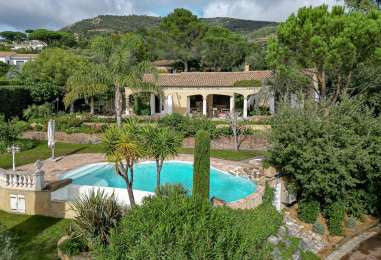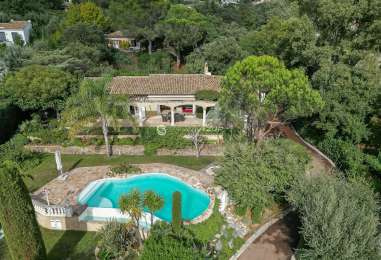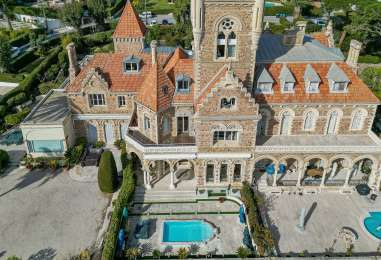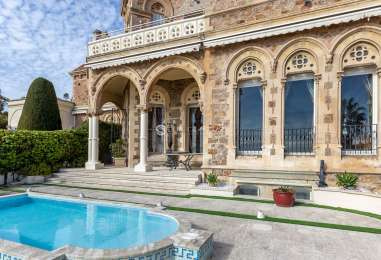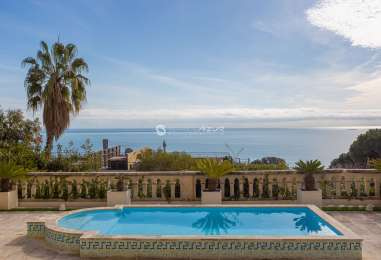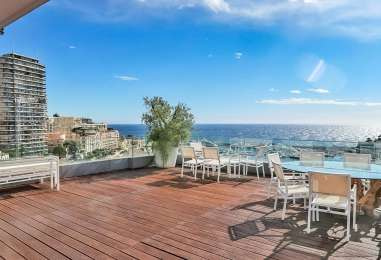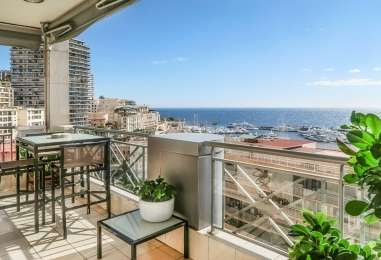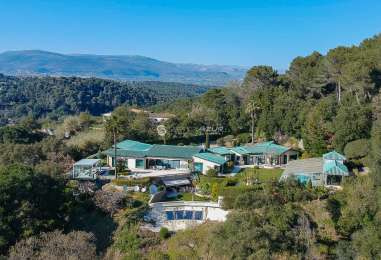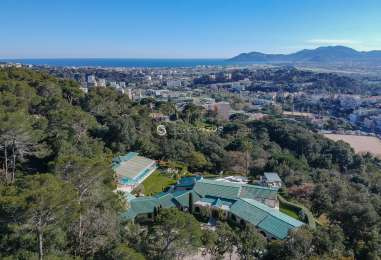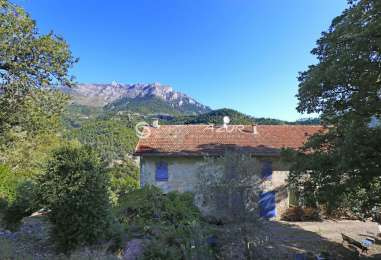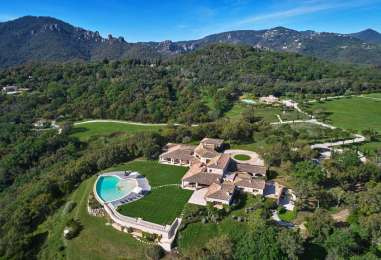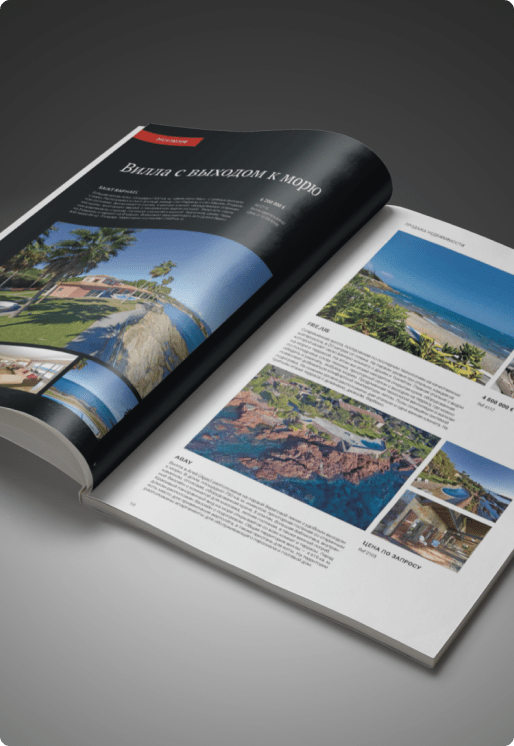Introduction
Navigating the property purchase process in France presents unique challenges for foreign investors. This article details the essential steps from financial planning to acquisition and includes a bilingual glossary of key terms. It is designed to simplify the complexities of the French real estate market, enabling informed and strategic investment decisions.
Preliminary Preparations
Financial Planning
Begin your journey into property acquisition with a detailed financial blueprint. This should include not only the cost of the property but also additional overheads like notary fees, which can range from 2-3% for new properties under five years old to 6-8% for older ones. Include agency commissions and property taxes in your plan. If you are an international investor, it's also vital to consider fluctuations in currency exchange rates and any international transaction fees.
Tax Implications for Foreign Buyers
Knowledge of French taxation laws such as wealth tax and capital gains tax can significantly impact your financial planning. Consultation with financial advisors specializing in French property laws can provide a realistic and legally compliant budget.
Define Your Property Criteria
Establish clear criteria for your ideal property. Beyond basic needs like location and size, ponder over luxury amenities you desire. Perhaps a sea view, proximity to cultural sites, or an on-site gym facilities? The more specific your criteria, the easier it will be to narrow your search and find your dream property
The Property Search
Utilize Specialized Agencies
Hiring specialized agencies with in-depth market expertise and local connections can save you time and potentially thousands of euros. These agencies can offer curated lists of properties that align closely with your criteria and provide invaluable legal guidance. They are also skilled in overcoming language and cultural barriers, making the transaction process seamless for foreign buyers.
Site Visits
Never underestimate the power of physical visits. Photos may be worth a thousand words, but an on-site visit can provide the nuanced understanding necessary for such a significant investment. Conduct multiple visits at different times of the day and week to gauge traffic patterns, noise levels, and other environmental factors.
The Offer and Due Diligence
Making an Offer
Upon identifying a property that meets your criteria, it's time to make an offer. This offer can be conditional based on financing, results of home inspection, or other criteria. Effective negotiation strategies, backed by market research and understanding of the seller's motives, can result in a more favorable deal.
Initial Agreements (Compromis de Vente)
Once you and the seller agree on the price and terms, the next step is to sign a Compromis de Vente. This initial contract outlines the conditions of the sale and legally binds both parties. Your Notaire will thoroughly verify the credentials and legal status of both parties, ensuring a smooth transaction.
Due Diligence and Inspections (Dossier de Diagnostic Technique)
French law mandates the seller to provide a detailed technical report, known as the Dossier de Diagnostic Technique. This report covers critical aspects like the property’s energy efficiency, presence of hazardous materials, and risk from natural disasters. Your agency can provide experts to scrutinize this information critically.
SRU Cancellation Right (Droit d'annulation "SRU")
After signing the Compromis de Vente, a 10-day cooling-off period ensues. During this phase, the property is off the market, reserved exclusively for you. You can opt out without financial repercussions, but the seller could face damages equating to 10% of the property price if they withdraw.
Pre-emption Right (Droit de préemption)
Be aware that French governmental bodies have a pre-emptive right to purchase any property before it is sold to a private buyer. Always consult with your notary to understand how this could affect your particular deal.
The Legal Nuances
Notary Involvement
The Notaire performs an indispensable role, ensuring all documents are legally valid, offering tax advice, and handling payment protocols. Post-signing, your Notaire registers the deed at the mortgage office and, within 3-4 months, an authentic copy of the deed stamped by tax authorities will be returned to you.
Final Sales Agreement (Acte de Vente)
The last legal step is the signing of the Acte de Vente. By this point, all pre-conditions should be fulfilled, enabling the notary to finalize the contract. Upon signing, ownership of the property is transferred to you.
Financial Settlement and Final Steps
Payment
Usually, payments for the property are channeled through an escrow account managed by the notary. Once the Acte de Vente is signed, the notary disburses these funds to the seller, marking the financial completion of the transaction.
Property Registration
Following payment, the Notaire undertakes the responsibility of registering the property in your name. This process may necessitate several months, following which property taxes and other related fees commence.
Keys and Possession
The property keys are handed over upon the completion of all legal and financial protocols, symbolizing the successful conclusion of your property acquisition.
Conclusion
The journey to acquiring a premium property in the Côte d'Azur is laden with multiple steps, each crucial and requiring careful consideration. By comprehending the stages involved, understanding the terminology, and being aware of the financial and legal nuances, foreign investors can significantly simplify this complex process. With meticulous planning and the right expertise by your side, the dream of owning a luxurious property in this enchanting region can indeed become a reality.
Glossary
To facilitate a smoother understanding of the property acquisition process, we have compiled a glossary that lists key terms. Each entry is structured as follows: the term in English, its French equivalent, and its meaning.
- Initial Agreements - Compromis de Vente: The preliminary contract that outlines the terms of the property sale. It serves as the initial legal framework that binds both the buyer and the seller.
- Due Diligence and Inspections - Dossier de Diagnostic Technique (DDT): A comprehensive folder provided by the seller that contains critical technical details about the property, such as energy efficiency ratings, lead content, and risk from natural disasters.
- SRU Cancellation Right - Droit d'annulation SRU (Solidarité et au renouvellement urbains): This is a provision in French law that allows buyers a 10-day cooling-off period after signing the Compromis de Vente, during which they can withdraw from the deal without incurring any penalties.
- Pre-emption Right - Droit de Préemption: This term refers to the right of first refusal granted to the French government or local municipalities. It allows them the opportunity to purchase the property before it is sold to a private buyer.
- Notary - Notaire: A legal expert pivotal in formalizing the real estate transaction. The notary is responsible for preparing all crucial documentation, offering tax advice, and managing payment procedures.
- Final Sales Agreement - Acte de Vente: This is the definitive contract that finalizes the transfer of property ownership from the seller to the buyer.
- Escrow Account - Compte Séquestre: This is a special account managed by the notary where funds related to the property purchase are held until all legal protocols are completed.
- Property Registration - Enregistrement de la Propriété: This is the final step in the transaction where the property is formally registered in the buyer's name.





